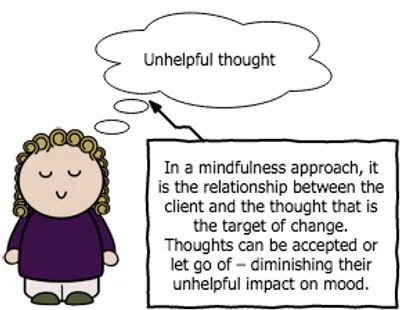Mindfulness-based Therapy

Similar to CBT, mindfulness-based approaches often target behaviour change to promote improvements in mood and well-being. It is the mindfulness approach to cognitions (thoughts) which differs vastly to the CBT framework. In a mindfulness approach, you are taught how to be more aware of and in control of where you are placing your attention by practising mindfulness meditation exercises. The purpose of this is to assist you to be more focussed on living in the present rather than investing in thoughts about the past or the future. This is especially useful for managing symptoms of depression and anxiety which are characterised by worries about the past or catastrophic thoughts about the future. Moreover, when we are living in the here and now and fully connected in the present, research suggests our well-being and quality of life increases.
Unlike the process of cognitive restructuring seen within the CBT framework, mindfulness approaches tend not to focus on changing thoughts – instead teaching skills for accepting and letting go of thoughts. In this way, the unhelpful impact of rigid or negative thoughts on mood and behaviour is reduced because the client’s belief and investment in these thoughts is diminished. As such, in a mindfulness approach, it is your relationship to the thoughts that is the focus of change rather than the thoughts themselves. This is depicted visually in the image to the right.




If you're seeking mindfulness based therapy from a Psychologist Melbourne
Get in touch with our friendly reception team. We offer a range of a therapies including CBT, Mindfulness, Schema Therapy, and EMDR Therapy Melbourne.










